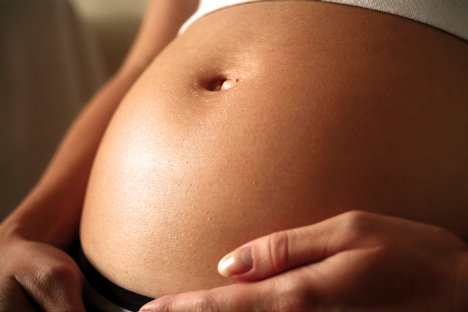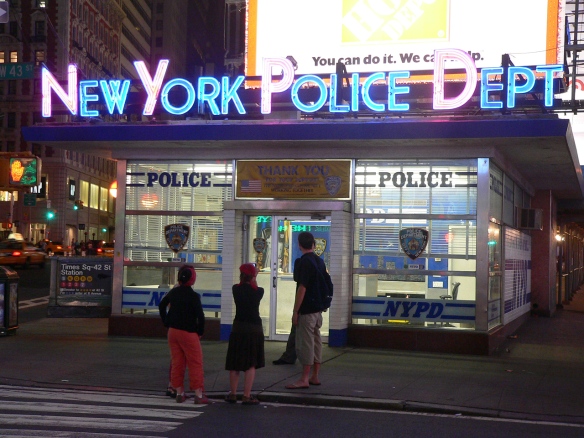After watching the episode of Brooklyn Nine-Nine that aired Nov. 22, 2015, my head is still aching.
There’s a reason my wife officially banned watching medical TV shows in 2005. I couldn’t stop pointing out continuity issues and downright treatment errors in the TV medical drama ER. It’s not my fault that the same random guy rolled a wall of IV poles through three consecutive scenes. I can’t tell you if it was more bothersome that I couldn’t explain the need to roll that many pumps around at the same time, or that it seemed that he was lurching around the ER instead of doing something useful.
Luckily, I think she left a loophole in the ban that allows blogging about medical flaws in TV shows. Besides, this time the gaffes were anesthesia-related.
In this week’s episode, the unusually (but comically) hectic Brooklyn 99th Precinct enjoys a visit by the pregnant wife of the Sergeant Terry Jeffords. We learn that Sharon had a horrible experience during her earlier delivery and insists she never return to the hospital. From watching the show, we already know the Jeffords had twin girls (cleverly named Cagney and Lacey).

“Pregnant woman2” by File photo, Canwest News Service – http://bit.ly/1SgBNPq Licensed under Public Domain via Commons
When Sharon suddenly goes into labor, she promptly announces the reasons she and Terry firmly decided that for this delivery there would be “NO HOSPITALS!!!” We learn: the last doctor forced her to have a c-section, the anesthesiologist couldn’t get the epidural stabbing her ten times in the “spinal cord”, and the ‘anesthesiologist’ was actually a medical student!
Her solution: a “birthing plan” and a doula. According to the logic of the Jeffords, this magically prevents all of the problems related to a hospital delivery. Her birthing plan was made even more believable by the requirement that her husband speaks to her in the soothing register of Barry White.
I accept that Western medicine has the potential to prevent patients from experiencing a more natural birthing experience. In fact, I am fortunate that women request my services to reduce the pain that is a ‘natural’ part of labor. While it is possible to have a difficult epidural placement, medical students never work unsupervised, and wouldn’t be allowed the latitude to attempt a difficult epidural. They certainly would never be allowed to take ten tries at a complex medical procedure like an epidural.
Some patients have an unfortunate, if not completely tragic, birthing experience. Suggesting that their bad outcome was because they didn’t deliver away from the hospital is irresponsible. Furthermore, undergoing a vaginal delivery after a cesarean is risky, and should never be attempted in a police interrogation room! (OK, maybe that last part is obvious…) After a patient has a c-section, contractions of the uterus during future pregnancies put tension on the scar, and there is a low, but finite, risk of rupture. Observation in a setting that can provide emergency c-section is the only advisable course of action.
For women who see a benefit to experiencing pain during their delivery, a restrictive birthing plan and a doula are a very reasonable option. However, this type of birthing plan isn’t for everyone, and potentially not for someone who previously had a c-section for twins. By blindly perpetuating these urban myths, the show does a disservice to viewers.
The final nail in the coffin of the Jefford’s ill-advised birthing plan is the idea that a fourteen-pound baby will just dance out of this poor woman without some impressive theatrics. Having previously had a c-section, Sharon has never delivered vaginally, and the cervix and uterus will undoubtedly be tested by such a feat. Fetal macrosomia (the medical term for a large fetus) exposes the mother to more risk for failed VBAC and other associated risks. Few (if any) doctors would recommend Sharon to attempt a vaginal delivery.
The passive perpetuation of medical myths on Brooklyn Nine-Nine has the potential to fan the flames of misguided and faulty birth planning. Hopefully, pregnant women aren’t taking birthing advice from a TV comedy – even if it is one of the funniest shows on TV!


Love your writing!
LikeLiked by 1 person